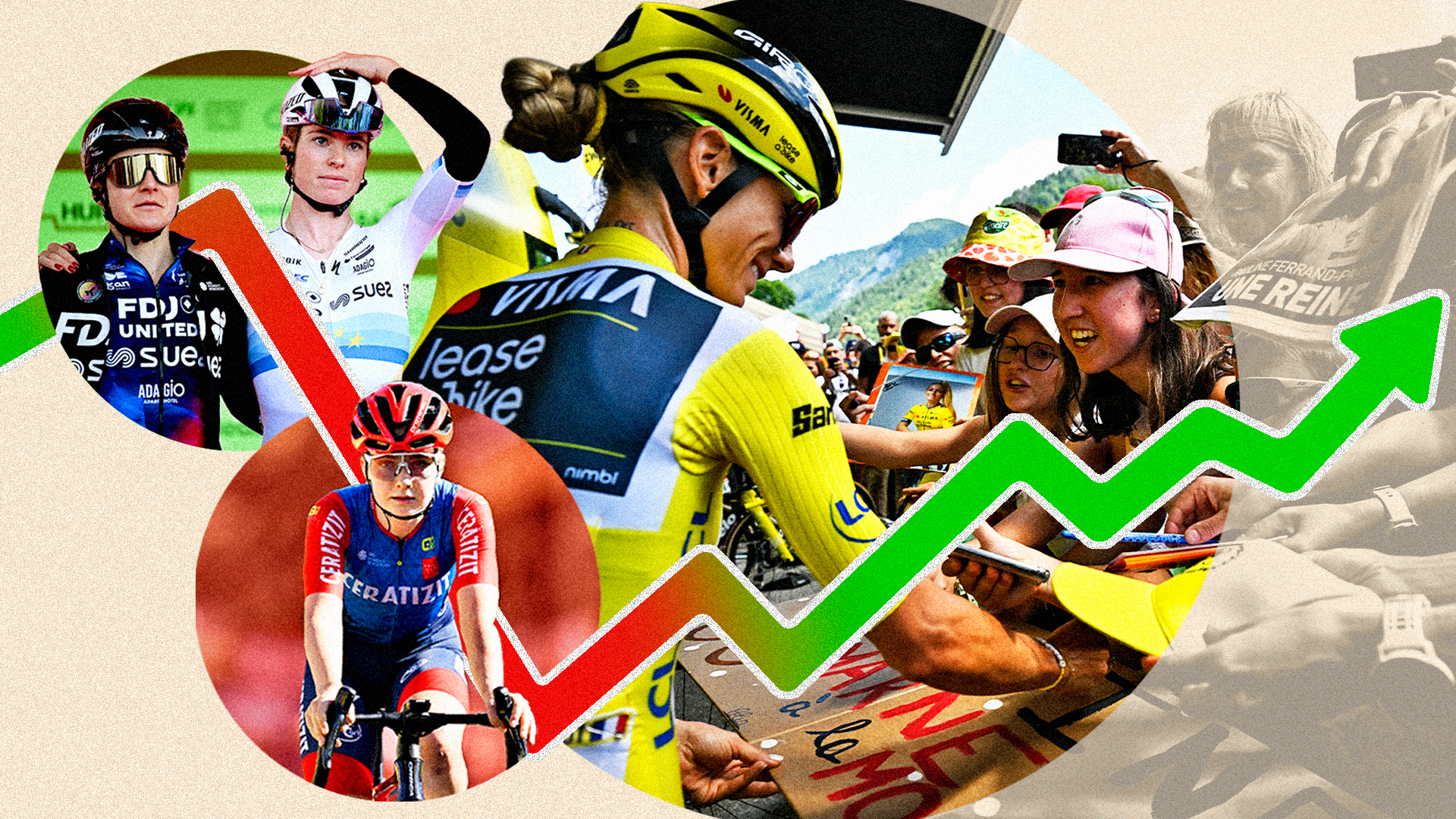Video: Schurter on track for Olympic mountain bike race
Swiss national champion is perfectly prepared
The latest race content, interviews, features, reviews and expert buying guides, direct to your inbox!
You are now subscribed
Your newsletter sign-up was successful
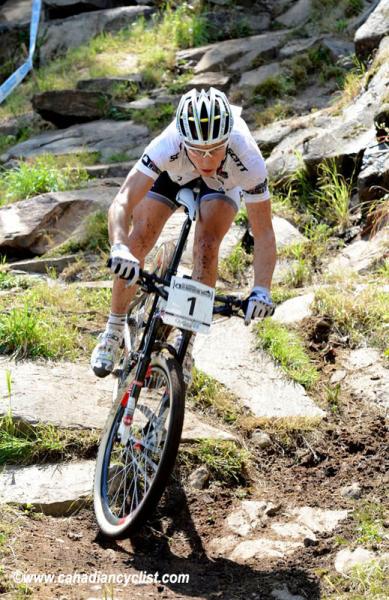
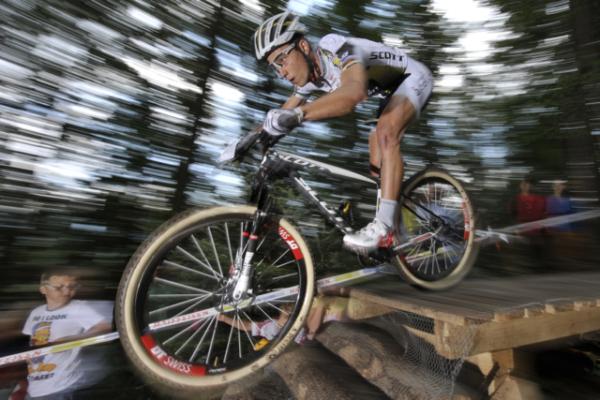
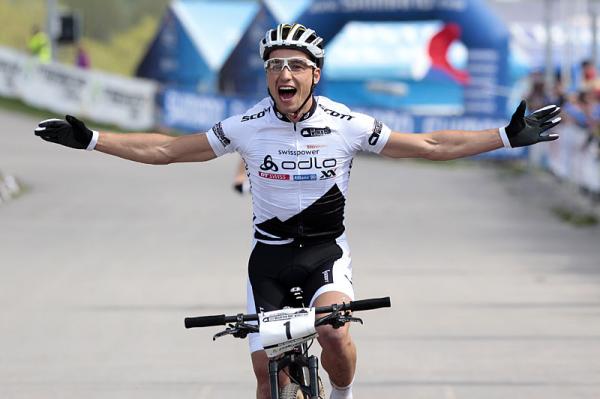
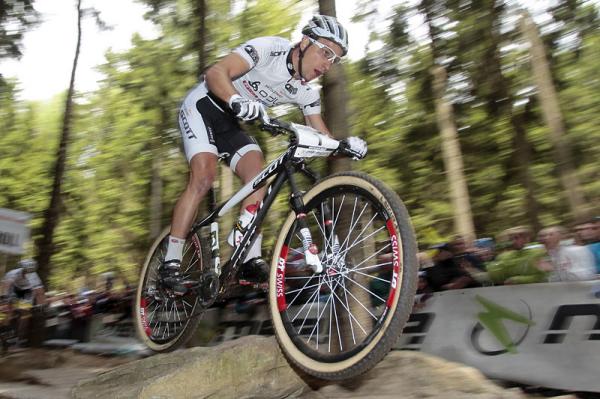
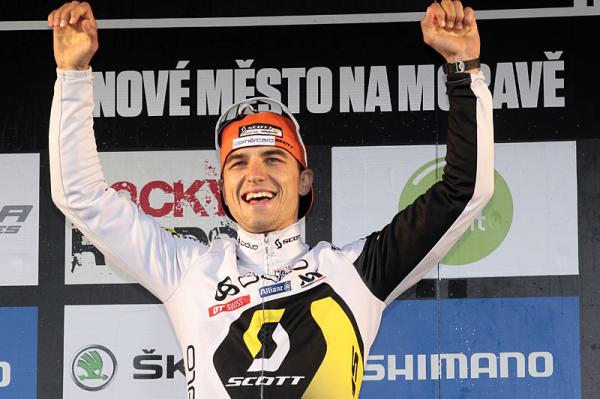
As he prepares for the London Olympic Games, Nino Schurter (Scott-Swisspower) has had an excellent 2012 season thus far. What would make it perfect would be a gold medal in the elite men's cross country mountain bike race on Sunday, August 12. It won't be easy, as the Swiss racer will have to beat favorite and two-time defending Olympic Champion Julien Absalon (Orbea), riding for France.
"Julien Absalon is still the man to beat. He is very strong this season again," said Schurter to Cyclingnews. "The past two years, I was thinking maybe he was slower, but no chance - he is still able to win the big races. He's one of the main favorites, then Jaroslav [Kulhavy], then Burry Stander, and maybe [Marco] Fontana."
"There are maybe 10 riders - if they have a good day and a little bit of luck - that can win a medal that day. But there are maybe four riders - if everything is going well and there are no mechanical problems or illness - that can win the race."
When asked if he would do anything special in preparation for the Olympic race, he said, "I will try to do all the exact same things I do for other races. I hope I'm not too nervous."
Schurter, who won the Swiss national championships last weekend, is careful to concentrate only his own preparation and not that of his competition. "I never focus on other riders. I just try to prepare myself as well as possible and do my job well. If I'm able to beat all others, than it's good. If not, then someone else was better."
Kicking off the season on a positive note
The Olympics usually changes the flow of the international mountain bike season, and this year is no exception. The World Cup season started earlier and is finishing earlier, too, for elite cross country racers, with the final round this weekend in Val d'Isere, just two weeks prior to the Olympic mountain bike race.
The latest race content, interviews, features, reviews and expert buying guides, direct to your inbox!
Schurter went into the 2012 season in a good position; he had pre-qualified for the Swiss Olympic team and got to sit out the tough competition that is making the Swiss Olympic team.
"Being pre-qualified was a big advantage for me compared to the other Swiss riders. I didn't have the pressure on me over the winter. I was able to relax a little. It can take a lot of energy to qualify."
"However, it wasn't an advantage over my biggest rivals like Julien Absalon, Jaroslav Kulhavy or Burry Stander because they knew last year, too, that they were also going to the Olympics. The Swiss Olympic team gave me the chance to prepare - just like my biggest rivals. It was a great thing for me over the winter and starting the season."
Schurter had what he called a "great winter" with a mix of riding and nordic skiing and was able to train well first in South Africa and then at home in Switzerland and also in Tuscany. "For me, I'm strong without a lot of races for preparation, so if I can train well, I can start racing well. My preparation was nearly perfect. I was never sick for very long and had no crashes. I was able to stay with my program. My [World Cup] season started well with a victory in Pietermaritzburg."
Speaking of subsequent World Cups, he said, "Then I was second in Houffalize behind Absalon. I was happy with that second place - it was quite cold, it was a challenge for me. It was also cool to win in Nove Mesto on my birthday."
Schurter had to sit out the La Bresse World Cup due to a stomach bug. For him, it was bad timing and it wasn't good for the World Cup overall, but he was grateful that there were no worse consequences since he was already guaranteed a spot on the Swiss Olympic team while his compatriots were duking it out for the other two spots.
Schurter went on to win the Mont-Sainte-Anne World Cup in a sprint finish with Jose Hermida (Multivan Merida). "I'm happy with my form and the races so far," he said on the eve of his victory in Mont-Sainte-Anne.
He sat out the most recent World Cup round in Windham, New York, and instead returned to Switzerland for a high altitude training camp of several weeks. Commenting on his choice to sit out a World Cup, he said, "I'm sure it's not nice for the World Cup if some of the top riders aren't competing in some important races, but the Olympic season is always special and you don't have as many chances for it."
"The World Cup overall is not a main goal for me this season. If I make the [World Cup] podium, it's cool, and if not, I want to prepare as well as possible for the Olympics. If everything works well, I'll be happy to win a medal in the Olympics. At the Olympics, you only get two or maybe three chances in your life."
The competition: Olympic vs non-Olympic years
In 2011, Jaroslav Kulhavy dominated the World Cup, but this year thus far, the world champion has not ridden as well. Other riders, like Schurter and Absalon and Stander, have proven stronger on the circuit.
When asked about what it was like to routinely get beaten by Kulhavy last year, Schurter said, "I was never focused on just Jaroslav. You have to do your job as well as possible. I think Jaroslav was stronger last year, but maybe all of us are stronger this year? It's hard to say."
"This year is like other years except everyone is focused on the Olympics. Everyone is trying his best - just like in other seasons. The level is like the years before. Sure everyone is trying to train a little better, but it's always a challenge. I would say the level is not higher in the Olympic season."
With a handful of athletes who can win a World Cup competing in all the major races, the season has produced some exciting major races so far.
"It's good for the sport that not just one of us is winning all the races now. We have quite a few riders that can win the big races now," said Schurter.
Olympics, take 2
In London, Schurter will be racing his second Olympic Games. He also raced in Beijing, where he won a bronze medal.
He trained on the Hadleigh Park cross country course once last year and once this year after the Houffalize World Cup. "It's a special track. It's 100 percent built on a farm. It's not too bad of a course. I hope it will be a nice race It's a course that's not too bad for me. There aren't any uphills that are too long and there are a lot of corners and short uphill sand short downhills. It will make it quite nervous. I'm looking forward to it."
Prior Olympic experience should pay off for Schurter, who said, "The Olympics are special for an athlete. It's a huge event. You get there and you have to be careful you don't lose your focus on your main goal. You see so many athletes, and it's dangerous to lose focus and not prepare as well as for other races. It's nice that I already had that experience. It will make it easier this time."
Schurter is part of the Swiss powerhouse team that also includes his Scott Swisspower teammate Florian Vogel and Multivan Merida's Ralph Naef. Making the Swiss Olympic team is a goal in itself, given that the nation produces so much mountain bike talent.
On the big day in London, Schurter may benefit from having Vogel in particular on the Swiss team. "Us being teammates will play a role depending on the situation in the race. There are situations where we can help each other. We don't have an order - who has to help whom. If the situation is there and we can help a teammate, we will. We don't go into it with a strategy to ride for a certain person."
The Swiss secret to success
Cyclingnews asked Schurter why there were so many good racers from Switzerland. He offered several reasons. "Switzerland is the perfect country to ride your mountain bikes. We have good trails and one of the biggest hiking trail networks, and you can ride on those trails. Everywhere you want to go, you can follow the hiking trails and ride technical stuff. I think that's why we are technically so strong."
"We have a good Cup in Switzerland in which young riders can compete from age seven through pros. Switzerland is quite small, so we have eight races and if you live in the center, you're never more than two to three hours from any of the races. The kids can race good races close to their hometowns."
"The kids have some pros that they can follow. It started with Thomas Frischknect, then Christoph Sauser, then Ralph Naef." Some cycling fans might add Schurter's name to that list soon if they haven't already.
Sue George is an editor at Cyclingnews. She coordinates all of the site's mountain bike race coverage and assists with the road, 'cross and track coverage.
